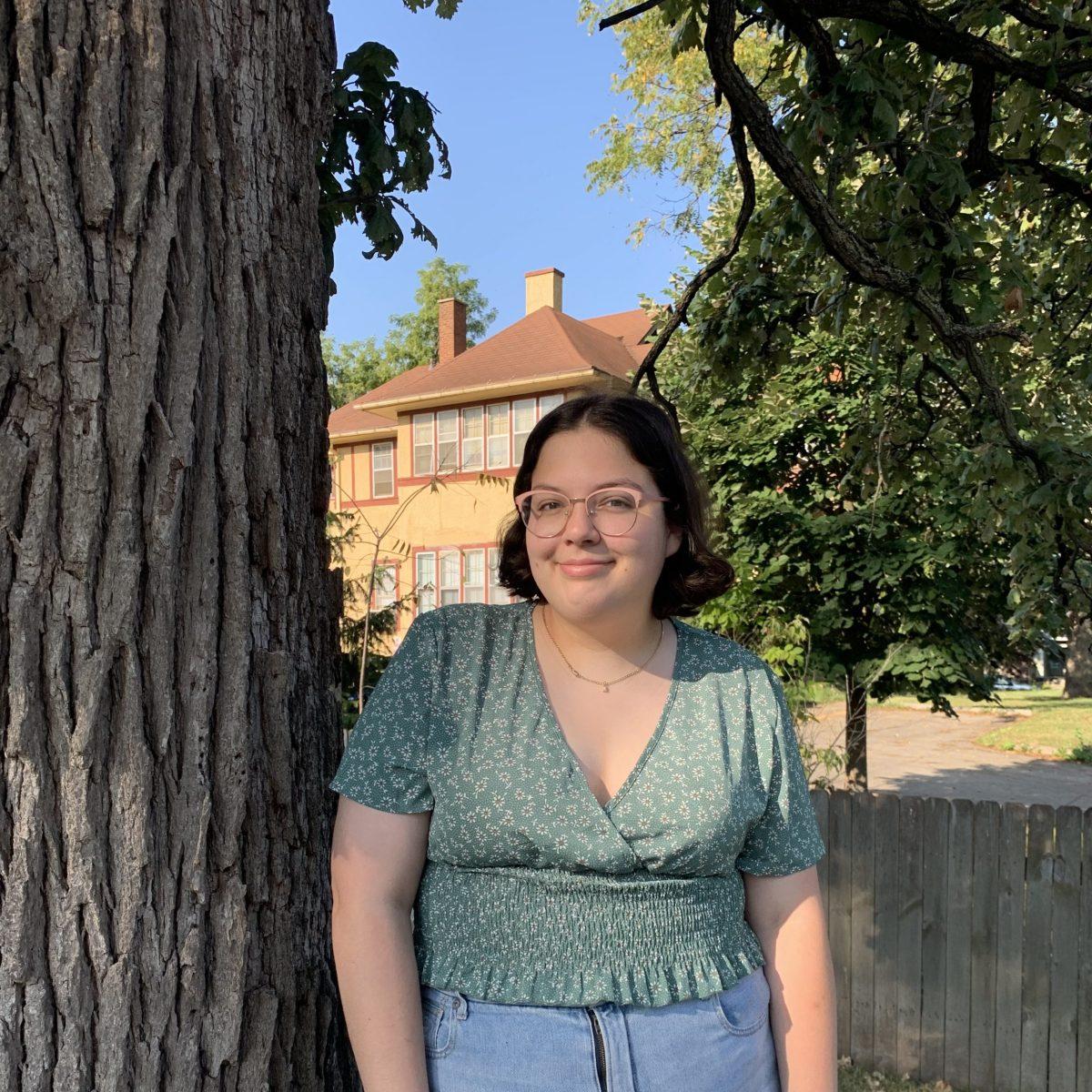While many Drake University students are beginning to get acquainted with professional opportunities in their prospective fields, Emma Bertrand is on the final stretch before entering the “real world.”
Bertrand, a senior studying secondary education with endorsements in all social sciences and K-12 talented and gifted, is student teaching in a government course at East High School.
Bertrand said that she has always had a passion for education.
“There’s nothing that has appealed to me as much as education has,” Bertrand said. “I had a rough upbringing growing up, and so for me, school was the thing that kept me on the right track. A lot of the time when I wasn’t safe at home, I was safe at school. I know that I wouldn’t be where I am today if it wasn’t for my education, and I want to be able to give that back to other people who may be needing that safe space in school as well.”
Bertrand is qualified in all social sciences, which encompasses seven different topic areas. These areas are U.S. history, world history, U.S. government, geography, economics, psychology and sociology. Of these seven subjects, Bertrand’s favorite subject to teach is U.S. government.
“I think social studies are really important because that is what makes you a good member of society and a good citizen,” Bertrand said. “You don’t know how to contribute to your government or your community unless you know how your government works. You can’t be a good citizen if you don’t have a good civic education. We can’t progress as a society if we haven’t looked at where our society started and the failings of that society. It’s important to look back on our history and the history of the world that we live in and see what we have done wrong, what mistakes we have made and what we can do better.”
Bertrand was placed in Randi Fitzgerald’s classroom at East High School. Fitzgerald, a certified teacher with a bachelor’s degree in sociology from the University of Northern Iowa and a master’s degree in teaching from Simpson College, explains why she brought a student teacher into her classroom.
“We need teachers,” Fitzgerald said. “Everywhere needs teachers. A little bit of it was selfish too because I feel like [Emma] is just as valuable for me — to teach me stuff. Anytime there is another adult in the room, there is an opportunity to learn from them. I love East, and if I can make someone else love East, then that is great too.”
Bertrand makes the distinction between practicum and student teaching, both of which are required of future educators. Bertrand said that a practicum is a shorter time commitment that may require that you make observations or teach a singular lesson, while in student teaching, you do everything that a teacher does, including taking attendance, grading and lesson planning.
With student teaching, there is a point where you are in control of everything,” Bertrand said. “The classroom becomes yours.”
Fitzgerald is especially proud of Bertrand’s growth in her confidence as she has progressed through her student teaching.
“She has grown much more comfortable in the teaching profession,” Fitzgerald said. “I have seen her become much more comfortable in the day-to-day, and that allows her to spend more time building relationships with students.”
Bertrand’s favorite part of student teaching is being able to connect with her students.
“Because I’m in the classroom every single day, I am able to build those relationships with students,” Bertrand said. “There is nothing more rewarding. As a teacher, you’re in it for the kids. Being able to connect with students on a personal level has probably been the most rewarding part of student teaching.”
Bertrand is excited for the next step in her career as she is applying for social studies jobs in the state of Iowa — however, there is a challenge that comes with being in the social studies field.
“A lot of people might think that it’s easier than the reality because a lot of people have heard of the teacher shortage,” Bertrand said. “There’s no teacher shortage in social studies. It’s a much harder industry to get into. There’s a lot more saturation in the social studies job market as opposed to science and math.”
As Bertrand continues to explore opportunities, she is grateful for the additional ones that Fitzgerald has provided her with.
“She’s created a lot of opportunities for me to develop that I don’t think I would have if I was with someone else,” Bertrand said. “Randi made it so that I talk to an instructional coach here at East. So I’ve been able to work on some areas where I struggle with an instructional coach which is usually not an opportunity teachers have until they are employees.”
Before Bertrand exits the world of student teaching and walks the stage, Fitzgerald leaves her and other educators with a word of advice.
“One thing my grandma told me — my grandma was an elementary teacher — is remember that ‘this too shall pass,’ ” Fitzgerald said. “You can have a great group, but you only have them for nine months, so enjoy it. Or you might have a really terrible group, but you only have them for nine months, so you’ll get through it. The students might not remember what you said, but they’ll remember how you made them feel.”







